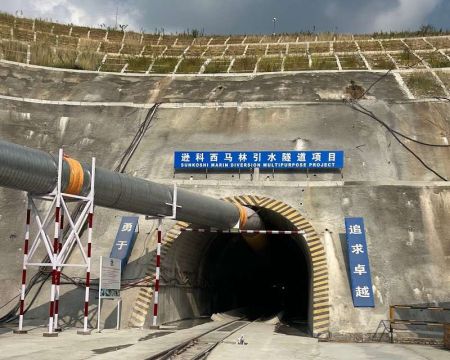Bhaskar Mani Gyawali
Executive Director-Banks and Financial Institutions Regulation Department
Nepal Rastra Bank
The banks should invest in the housing industry because real estate sector too must develop. This is required to ensure the right of the people to live in their own houses. There must be investments in this sector and this sector must develop but all this has to be transparent and healthy.
What actually does NRB want in the investment of commercial banks in the housing industry?
The NRB wants real estate and housing business to develop as a true industry. In this sector currently, a huge amount is invested from the banks, the developers and the general people. Concentration of such a huge amount in a single sector affects other sectors too. The NRB wants this sector to surge professionally. There will be investment as required and the transparency and honesty has to be maintained at the highest degree.
Is the investment in the housing industry feasible for the banks in Nepal?
The banks should invest in the housing industry because real estate sector too must develop. This is required to ensure the right of the people to live in their own house. But we thought the trend of unnatural price hike driven by the investment for profit from money borrowed from the bank wouldn't be sustainable. Therefore, the NRB has put a limit for bank investment in this sector. However, it does not mean that the banks should not invest in this sector. There must be investments in this sector and this sector must develop but all this has to be transparent and healthy.
The NRB recently relaxed the cap it had imposed on bank lending in the real estate sector. Why was the NRB late in realising this sector's potential as an industry?
What was happening in the past was: people were buying land with the help of bank borrowing and selling the same land to others for profit who in turn, were borrowing from the bank to pay for the purchase and selling the same land further for profit. It formed a never-ending chain that resulted in land prices being unnaturally hiked. The NRB is against such practice. We believe the real estate sector should develop in a professional way. Lending for purchasing real estate properties meant for personal use should not be stopped if the buyer of such property has enough income to service the loan obligations. Such real estate lending is to buy land for constructing personal residence, to construct a residential house on the borrower's land and to buy houses or flats in the community housing projects. So, we recently issued a directive to remove loans up to Rs 6 million from the category of the real estate loan. If the banks do not invest in houses and apartments, the people's right to have their own house will be a mere dream. In the long run, old houses will need to be replaced and with the increase in population, more people will need houses. We have not tried to discourage investment into this sector and that is why we relaxed the lending.
How can you say that the real estate loan provided to under a new name 'home loan' would not result in similar adverse consequences as in the past?
The loans up to Rs 6 million have been removed from the category of real estate loan. This loan is provided by banks depending on the borrower's ability to pay back the instalments. Previously, the real estate loans went mostly for the speculative business of land plotting that created undesired consequences. But the home loan is not speculative and will not create problems.
The developers complain that the NRB has been hurting their business by introducing adverse policies. What do you have to say about it?
Well, considering the demand of the real estate developers, we removed the loans of up to Rs 6 million for the purchase of apartments and houses from the category of 'real estate loan'. But the developers are demanding that this limit has to be lifted further. We believe that Rs 6 million is a huge amount of money and higher than required by an average Nepali to purchase a house. So, it is not possible to lift this limitation any further.
The Supreme Court recently nullified the earlier rule that required all the real estate transactions exceeding Rs. 5 million in value to be through a bank. What is the view of NRB on it?
The verdict of the Supreme Court is equivalent to law and we respect the decision. Cheques, cash or any other methods are just the instruments of payment. Looking at the international practice of making payments, it is difficult to say that payments through cheques would create problems and cash wouldn't. We recommend that transactions should be made through any other method other than cash. And a cheque is safer, simpler and easier. This is the intention of the banking system around the world and the NRB's wish is no different.
What are the possible measures that the NRB can initiate or facilitate for the smooth growth of the housing industry?
We have now brought the home loans of up to Rs 6 million under the category of personal loan. This indicates that the NRB wants this business to develop and move ahead in a healthy way. With the time and demand, there will always be room for necessary amendments.
What is the current status on loan recovery from the housing industry?
The banks have to recover any lending within the stipulated time period. We have received information that the loans are being repaid.
What is the total investment of the banking industry in this sector? Do you see further investments coming into this sector in the coming years despite its present precarious position?
Currently, the total investment in this sector is Rs 97 billion which is 18.9 per cent of the total investments made by commercial banks. The real estate and housing sector is a growing business and there must be further investments in in this sector also in the future. The past practice of using bank's money to speculate on the real estate should not be there. However, to fulfil the people's need for houses and apartments, there must be further investments pumped into this sector.






















